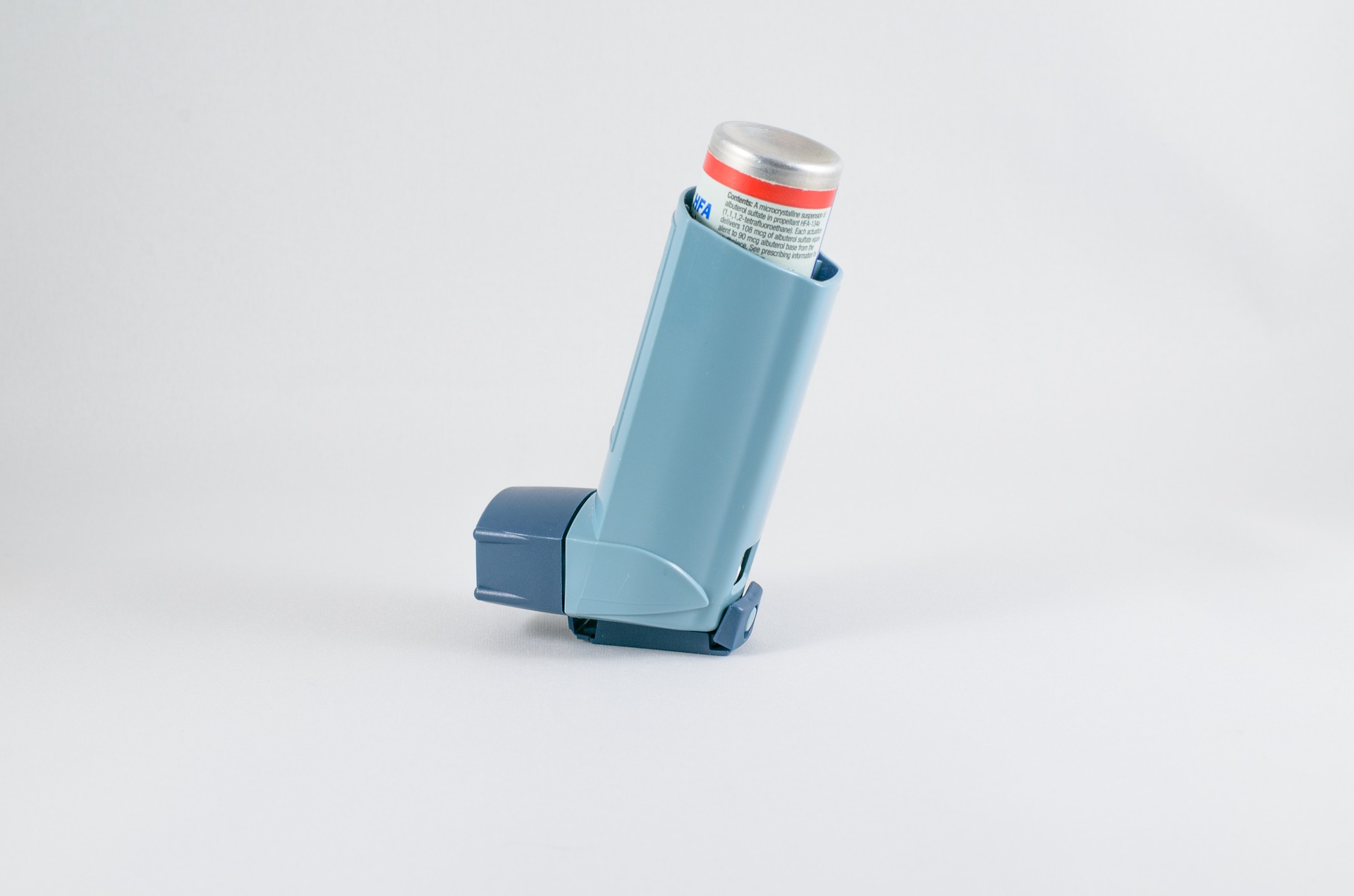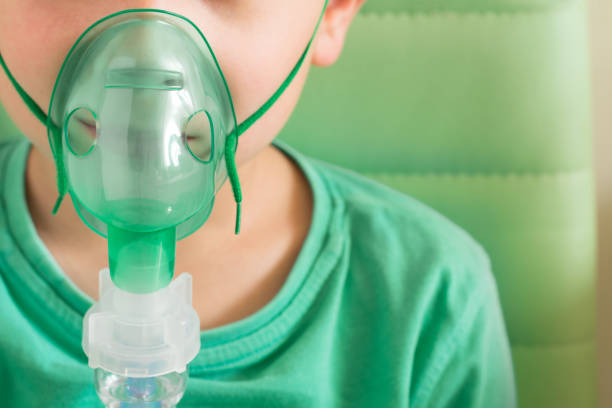5 Pictures Singaporeans With Asthma Can Relate With
Those of us who’ve grown up with asthma or know someone who did would be familiar with these unpleasant sensations: gasping for air, making loud wheezes, and feeling tightness in the chest.
Before Covid-19 plagued the world, asthma was the more common respiratory distress in Singapore—some have been experiencing it for most of their lives.
Living with this condition isn’t easy, but it can be strangely comforting to know that you’re not alone.
Let’s take a walk down memory lane and look back at how far you’ve come in managing your symptoms. We spoke to several Singaporeans who grew up with asthma to find out 5 familiar pictures they can 100% relate to.
1. Keeping the blue inhaler as a constant companion
When one mentions asthma, pictures of this trusty little contraption comes to mind.
In fact, if you grew up with the condition, it’s pretty hard to imagine your childhood without it.
This quick-relief device eases asthma symptoms. Thanks to it, you could carry out certain physical activities with ease, concentrate on your studies, and most importantly, get a good night’s sleep.
You’d feel tempted to fiddle with it during lessons, and classmates may have asked you about it or even wanted to try it out.
And who could forget the time when you sneaked a peek at the receipt after a doctor’s checkup and found out how expensive this tiny gizmo was. If you’re a Zoomer who knows this problem all too well, we believe the word you’re searching for is shooketh.
2. Having weird circular marks on your face after using the spacer
Asthma attacks can be pretty debilitating. When an inhaler doesn’t do the trick, it’s best to seek medical attention promptly. For those who’d been in and out of the A&E, this spacer will look super familiar.
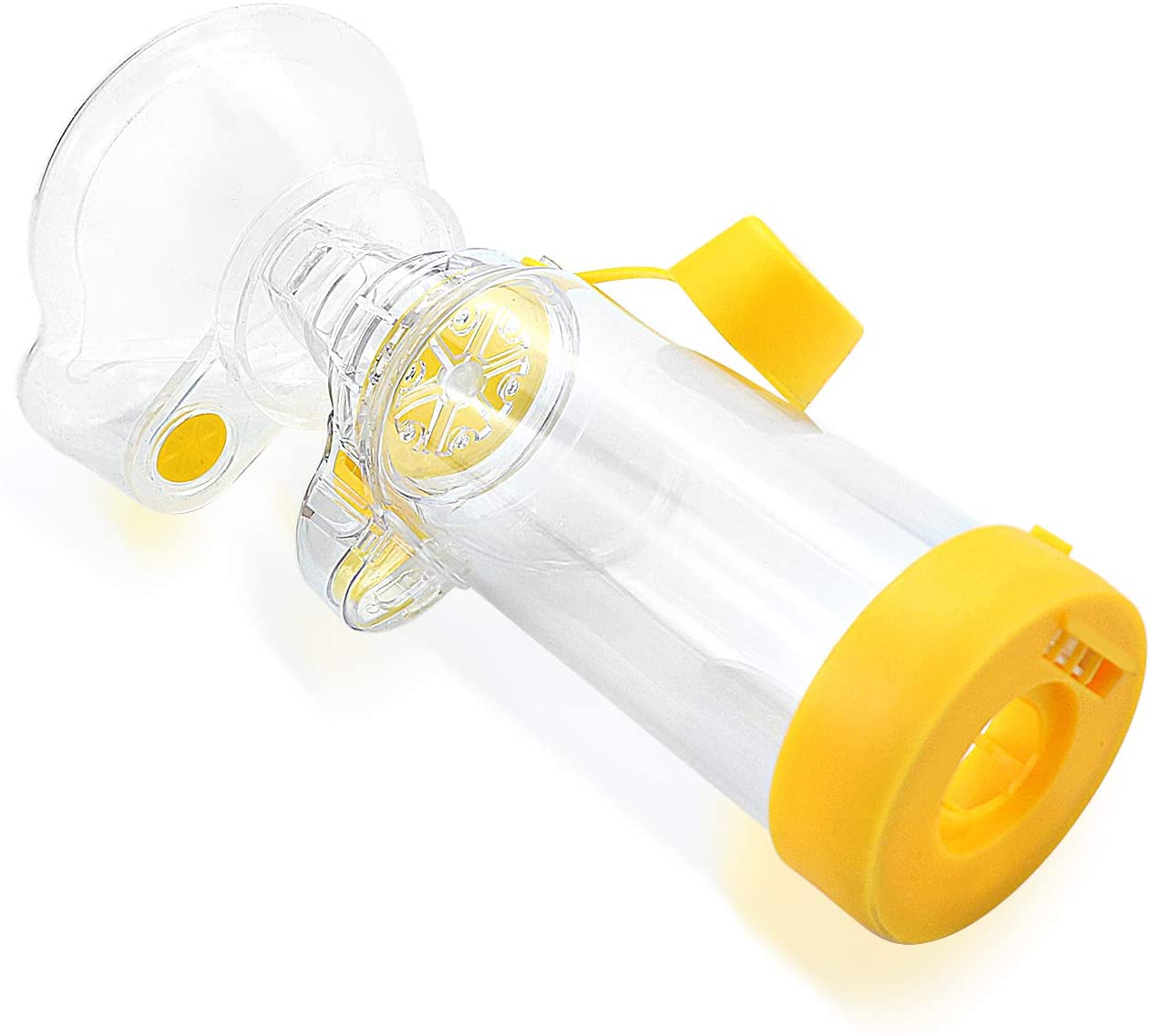 Spacers can be used by adults and children alike
Spacers can be used by adults and children alike
Source
Cue memories of how uncomfy this spacer once felt on your face. Some might have had it held too tightly against their cheeks.
Depending on the urgency of the situation, you’d have to bear with this spacer for around 10-20 minutes before leaving the clinic with an awkward circular mark around your face.
Despite the discomfort and the hassle to bring this around, spacers are pretty helpful as they get medication straight into your lungs. It also helps you coordinate your breaths easier when inhaling and exhaling.
3. Failing NAPFA test, especially the 2.4km run
Ah, the National Physical Fitness Assessment (NAPFA) scheme—the bane of almost every student’s existence, even more so if you’re not athletically inclined.
Things were a tad worse when you’re an asthmatic student who couldn’t be excused from the test. Hence, you had no choice but to accept failing certain stations, especially the 2.4km run.
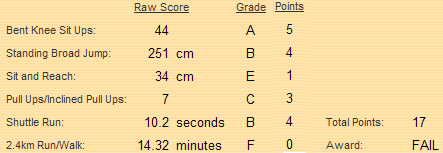 For illustration purposes only
For illustration purposes only
Source
Mugging life was stressful enough as it was, so the expectation of passing a physical fitness test only made the struggle even more challenging.
“Don’t exert yourself! Just try!” You bit your lip and trudged on because your teacher said exercises are beneficial for the asthmatic. But sadly, the encouragement alone still wasn’t good enough for you to pass the 2.4km run.
Then, you had no choice but to sit at one side with others who failed the test too. Shag.
4. Feeling like you’re alive again after using the nebuliser
Other than breathing difficulties, people with asthma would experience a tightness in their chest sometimes. This is because their airways get inflamed and swollen when triggered by certain irritants.
When that happens, a spacer and inhaler won’t suffice. Doctors would let you wear a nebuliser instead.
The machine turns liquid medication into fine mist, so you can inhale easily and finally feel like you’re, to put things honestly, “not going to die”.
After a while, your throat might start feeling a little dry. You could even end up with chapped lips while the medicine leaves a metallic aftertaste.
If there was ever a need to use the nebuliser again, just remember to hydrate yourself after, and you’ll be fine.
Bringing multiple inhalers around to treat asthma
Given the essential role that inhalers play in asthma management, you can’t imagine going out and about without carrying the device at all times.
Before leaving the house, it’s crucial to ensure that you have them in easily accessible places. But things can get a little tricky when you have to bring multiple inhalers around.
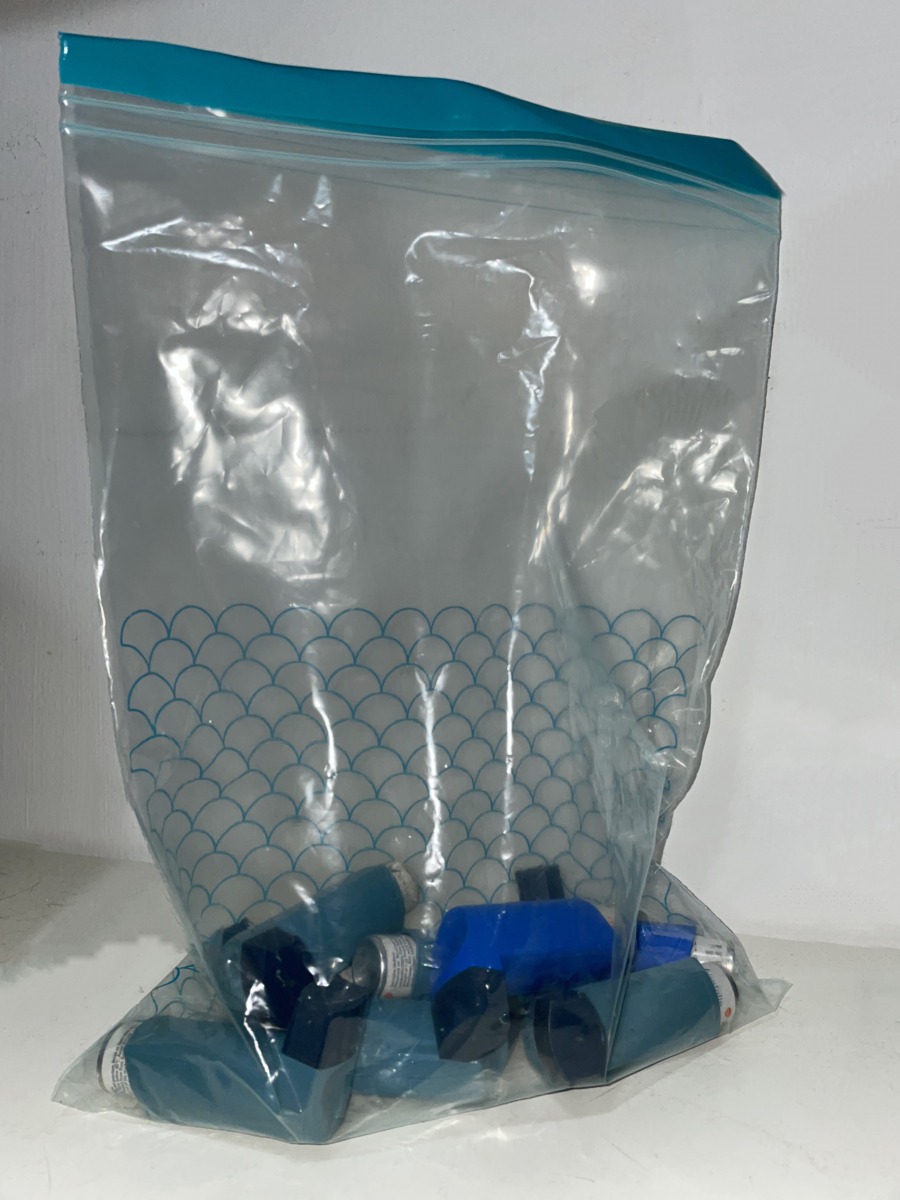 Image courtesy of Fikah
Image courtesy of Fikah
For those who own an array of inhalers, you’d probably have them stored readily in different places such as your office desk, WFH desk, and bag for convenience.
It can be a bit troublesome to bring multiple inhalers around due to their awkward shapes. But when the time comes, you’ll feel much better knowing that you did.
You need more than just the blue inhaler to manage asthma
As an adult with asthma today, perhaps there’s less reliance on multiple devices to keep your symptoms at bay. But if you think it’s OK to get by with just the blue inhaler, doctors say it’s not.
The blue inhaler only helps relieve symptoms quickly but does not address the inflammation in your airways that causes asthma.
In fact, 1 in 3 people admitted for severe life-threatening asthma attacks in Singapore was only using the blue inhaler. Using 3 or more reliever inhaler canisters (blue inhalers) per year is associated with twice the likelihood of hospitalisation.
Since airway inflammation doesn’t actually get treated with the blue inhaler, over-reliance on the device could worsen your asthma.
The Asthma & Allergy Association Singapore recommends that you start by finding out your level of reliance on your blue inhaler here.
To keep asthma symptoms under control, visit your doctor to get a proper diagnosis, work with your doctor on an asthma action plan and take your prescribed preventer inhalers.
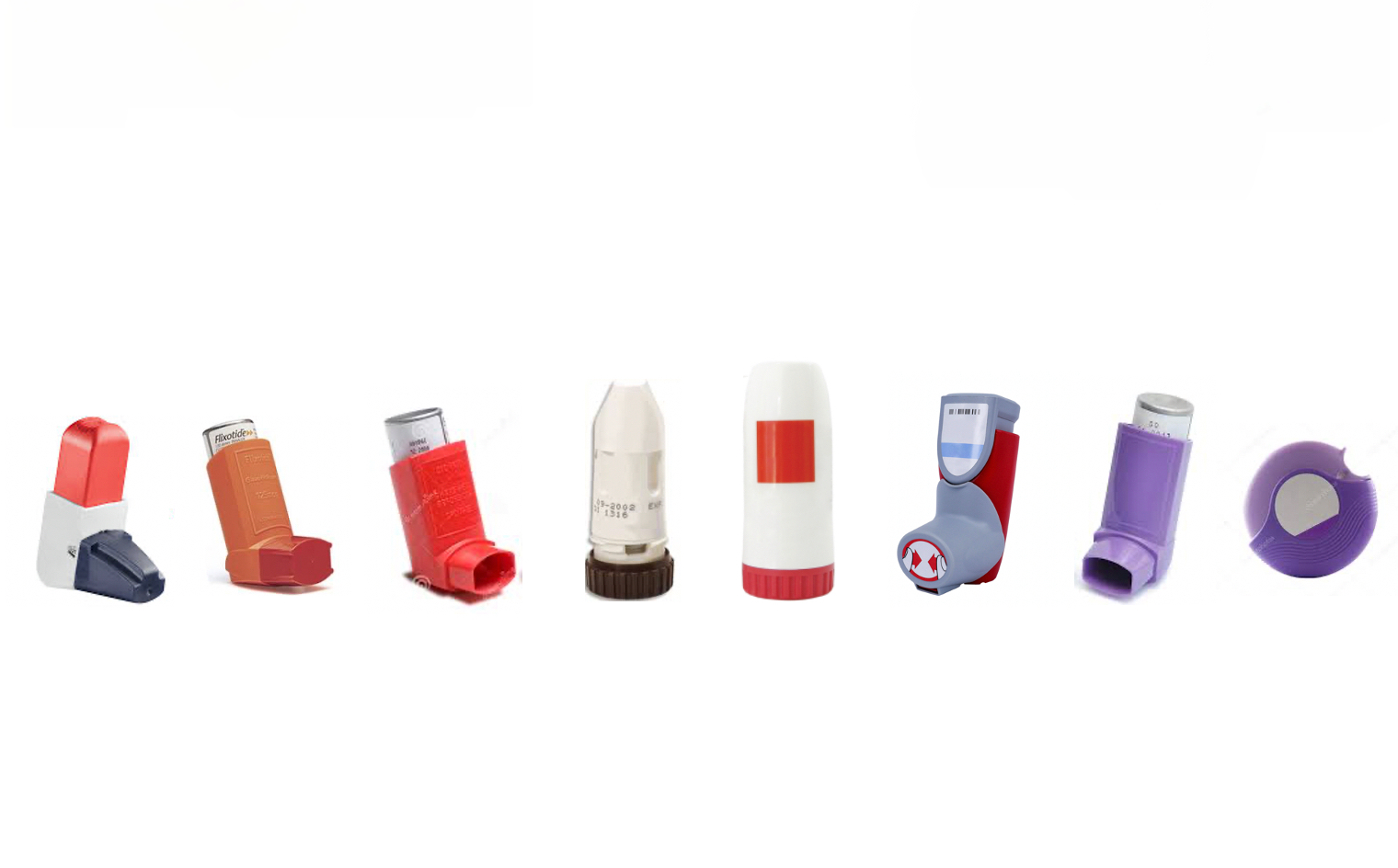 A variety of preventer inhalers could be prescribed to address inflammation in the airways
A variety of preventer inhalers could be prescribed to address inflammation in the airways
Image courtesy of the Asthma & Allergy Association
A preventer inhaler contains corticosteroids and helps to reduce the inflammation in your airways (the cause of asthma).
If you had one but lost it, you can get one from the doctor’s again or at the pharmacy if you’ve bought from them before.
Opting for better ways to breathe easier in life
Not going to lie, growing up with asthma sucks, but you’re not alone. Asthma affects about 1 in 5 children in Singapore, according to HealthHub. Chances are, you’ll outgrow it when you reach adulthood.
If not, it is a pesky condition that you’ll have to live with for the rest of your life. It’s not easy being wheezy all the time, but effective management of your symptoms can go a long way.
Be sure to check with your doctor whether you’ve been doing things right, so you and your loved ones can literally breathe easy.
You can also keep a lookout for friends or colleagues who are still struggling with it. Because now that you’ve read this, you’re in a better position to advise them on what to do next.
More resources on effective management of asthma are available here.
This post was brought to you in collaboration with the Asthma & Allergy Association Singapore and the Healthy Lung initiative.
Featured image adapted from OMRON My Health, Health Plus & Lazada.

Drop us your email so you won't miss the latest news.

